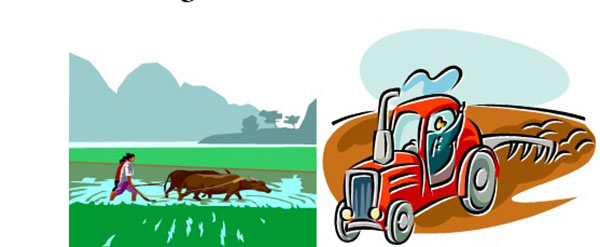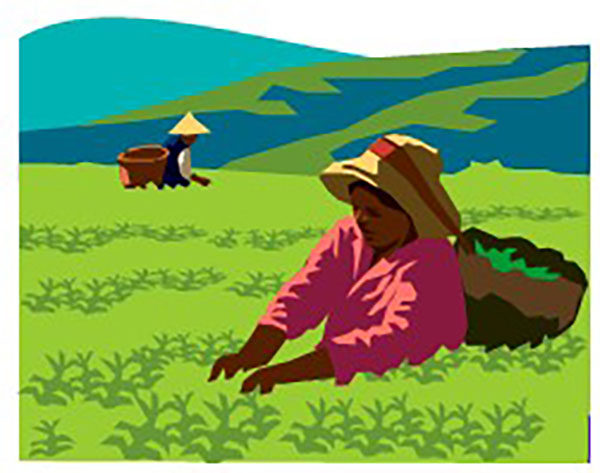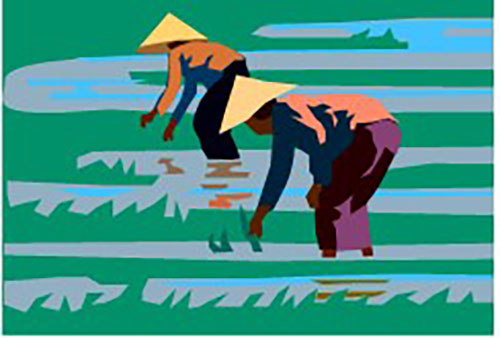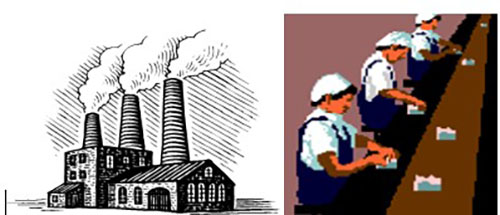Lessons Learned from the Dean of the Faculty of Agriculture & Thereon – By Noor Rahim

It was in February 1968 that I had the privilege and pleasure of meeting with the Dean of the Faculty of Agriculture – University of Ceylon (Peradeniya Campus). He was a part of the Team that accompanied the Prime Minister of Ceylon, the Hon. Mr. Dudley Senanayake, at the inauguration of the “Green (agricultural) Revolution” that was being inaugurated in the Amparai District. I believe the Dean of the Agricultural Faculty was Professor Peter Seneviratne.
The Dean arrived early at the Airport at Amparai, after the inauguration; and informed us that the Prime Minister was held up at a Political Rally; and would be arriving later on.
It was at this juncture that I thought of striking up a conversation with him. Thus I thought I should broach him on the subject of introducing “Mechanization” in the field of paddy cultivation; and “Industrialization” similar to that followed by other developing countries in the World.
What he explained to me was a wonderful lesson that I shall never forget. The lesson remains vivid in my mind and is worthy of comparison for what it was and what it is in the present context. Hence I wish to pass it on to the learned reader to consider and form his own opinion on this matter; which I’m certain will rekindle the memories of the past.
He first started off by indicating that we were from olden days well known for its Agriculture; and was known as “The Granary of the East”. Very unfortunately this renowned accolade and acclaim seem/appears to have faded away; after the British conquest that introduced “cash crops” into the country, which was more useful to their very own needs and economy.

Paddy cultivation took a back-seat during the rule of the British. The mountain side in the salubrious climes of the land were planted with the commercial tea crops. This would have a detrimental effect on the irrigation systems that hitherto channeled the Great Mahaweli Ganga (River) to the low lands and the waters collected in big man made tanks.
I digress from the dialogue with the Professor to relate a conversation with the Honourable Minister of Agriculture & Lands, Mr. S.K. Sooriyaratchi whom I had the honour to fly on an aerial reconnaissance of the Mahaweli Diversion Scheme. He stated that when the Diversion was undertaken and excavation took place they unearthed the already existing channels; anicuts; sluices where modern technology deemed that the diversion should be routed through. This speaks highly of the intelligence of our ancient rulers, no doubt. He also said that a University study revealed that the disappearance of the earlier diversion was mainly due to the silting up of the aforesaid, due to soil erosion caused by the Tea Plantations; and the gross neglect of the existing irrigation system of that time.

Primarily our Agriculture was based on the Village Community concept of living style and livelihood. The link between the Village and the surrounding fields was one of closeness/togetherness of the Community. Every able person in the Village participated in the agricultural process – be it plowing; sowing of seeds; transplanting; reaping and gathering the harvest; and threshing of the paddy. The plowing was carried out with the aid of the water buffalo. The whole process was done with great camaraderie; and so much so that if one did not turn up for work the others showed great concern. Needless to say all participants in the venture were rewarded with a portion of the crop. The harvesting of the crops was deemed a very special and auspicious occasion. Starting off with invoking and thanking the Deities for the Harvest. It had a very carnival atmosphere and an occasion that would have enticed visits by Foreign Tourist.

In mechanizing the above processes we would require purchasing at least a Tractor. We do not manufacture such equipment in our country; and hence we would have to dependent on Developed Countries to import this equipment from. Furthermore the fuel and lubricants have to be imported from oil producing country; and spares and tires will have to be imported from the country/countries of manufacture too. All these have to be paid for in foreign exchange. The cost of such would really amount to a tidy sum of money.
Getting back to the old traditions we will now find that the tractor has taken over the task of the water buffalo. The water buffalo that lived off the land – needing little or hardly any expense to maintain. The residents of the Village would lose their means of livelihood. The land owner would have to set aside part of the proceeds of his harvest, towards the maintenance of his tractor. So do you see any real benefits accrued by the purchase of the tractor?
It does not end there. There is the moral factor that kicks into this scenario. The unemployed will leave their villages to earn a living and end up in nearby towns and cities for employment. (Presently, of course, job placements are readily available overseas.) With that comes the temptations for that flashy and money spending ways. Couple this with the lack of parental discipline and elderly guidance; and regrettably the sense of closeness/togetherness and the traditions/customs becomes a thing of the past – perhaps to be replaced by greed and adoption of Western and other alien Cultures. In the process we have lost a long line of generations of Rice Paddy Farmers. The life-line of our coveted and revered agricultural needs of our Land.
Here again I wish to digress in relating a meeting with the Honourable Minister of Education Mr. I. M. R. A. Irriyagolle; whom I had the privilege of flying to Anuradhapura on his “educational reformation tour”. He told me that in the Education system it is not everyone who can advance into higher studies academically. Those who do not reach the standard required for further studies must be channeled into “pre-vocational” training. A farmer’s son will have the natural aptitude for farming; a carpenter’s son would make a fine carpenter and so on and so forth. This concept adopted by this very educated and far-sighted Gentleman was used against him by the Opposition at the next elections and he lost his seat.
So not only has the tractor made life easier for the Land owner, we have lost the future farmers to other unrelated trades.
The further deterioration of our moral fibre would no doubt be enhanced by the concept of introducing “Industrialization” to this once serene and rich cultural heritage of our Noble Land. One must remember in “industrialization” the factories and workplaces are going to be established at major cities which are close to “lines of communication” with the outside world. We now see the “farmer” venturing further away from his inherited habitat; and in most cases the further deterioration of ethics & morals; and more so the loss of our heritage – traditions & customs so to speak.

Thus the lessons I learned from the Professor was very far reaching to me. We lost jobs to the outside world and we lost our very own rich culture, customs/traditions and morals to that of the alien ways of living. More so the unity among the simple, fun loving people; living a life of simplicity seethed in traditions. I leave the learned readers to reach deep into their own intelligent way of assessing this lesson and forming their own opinion. I raise my hat to the Professor for his foresight into the future. Of course the other school of thought would be – “Are we going to remain like frogs in the well?” In a World that advancement is judged on GNP; Per Capita earning and other fancy financial and economic terms to bolster a speculative “Financial” standing of a country. Have we really advanced in our way of life and lifestyles or is it just a facade; and as the saying goes “Keeping up with the Jones’s?”
Noor Rahim
October25, 2014








No Comments